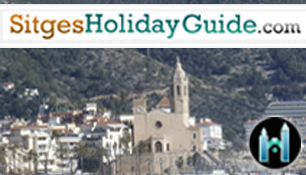December 17th , 2012 → 3:16 pm @ Sitges // No Comments
Cover of Each Book (details below)
(each links to more info : Link to Barcelona Sitges & Civil War Books, Amazon Store)



Details on Each Book
(each links to more info : Link to Barcelona Sitges & Civil War Books, Amazon Store)
The Spanish Civil War: Reaction, Revolution and Revenge

A rousing and full-blooded account of the Spanish Civil War and the rise to prominence of General Franco.
No modern conflict has inflamed the passions of both civilians and intellectuals as much as the Spanish Civil War of 1936–39. Burned into our collective historical consciousness, it not only prefigured the imminent Second World War but also ushered in a new and horrific form of warfare that would come to define the twentieth century. At the same time it echoed the revolutionary aspirations of millions of Europeans and Americans after the painful years of the Great Depression.
In this authoritative history, Paul Preston vividly recounts the political ideals and military horrors of the Spanish Civil War – including the controversial bombing of Guernica – and tracks the emergence of General Franco’s brutal but extraordinarily durable fascist dictatorship.
The Spanish Civil War

Since its first publication, Hugh Thomas’s The Spanish Civil War has become established as the definitive one-volume history of a conflict that continues to provoke intense controversy today.
What was it that roused left-wing sympathizers from all over the world to fight against Franco between 1936 and 1939? Why did the British and US governments refuse to intervene? And why did the Republican cause collapse so violently? Now revised and updated, Hugh Thomas’s classic account presents the most objective and unbiased analysis of a passionate struggle where fascism and democracy, communism and Catholicism were at stake – and which was as much an international war as a Spanish one.
‘Remarkable … a definitive account’
Sunday Times
The Spanish Holocaust: Inquisition and Extermination in Twentieth-Century Spain

Winner of the Sunday Times Non-Fiction Book of the Year for 2012, this is a meticulous work of scholarship from the foremost historian of 20th-century Spain.
The culmination of more than a decade of research, ‘The Spanish Holocaust’ seeks to reflect the intense horrors visited upon Spain during its ferocious civil war, the consequences of which still reverberate bitterly today.
The brutal, murderous persecution of Spaniards between 1936 and 1945 is a truth that should have been told long ago. Paul Preston here offers the first comprehensive picture of what he terms “the Spanish Holocaust”: mass extra-judicial murder of some 200,000 victims, cursory military trials, torture, the systematic abuse of women and children, sweeping imprisonment, the horrors of exile. Those culpable for crimes committed on both sides of the Civil War are named; their victims identified.
‘The Spanish Holocaust’ illuminates one of the darkest, least-known eras of modern European history.
The Battle for Spain: The Spanish Civil War 1936-1939

The civil war that tore Spain apart between 1936 and 1939 and attracted liberals and socialists from across the world to support the cause against Franco was one of the most hard-fought and bitterest conflicts of the 20th century: a war of atrocities and political genocide and a military testing ground before WWII for the Russians, Italians and Germans, whose Condor Legion so notoriously destroyed Guernica.
Antony Beevor’s account narrates the origins of the Civil War and its violent and dramatic course from the coup d’etat in July 1936 through the savage fighting of the next three years which ended in catastrophic defeat for the Republicans in 1939. And he succeeds especially well in unravelling the complex political and regional forces that played such an important part in the origins and history of the war.
British Volunteers in the Spanish Civil War: The British Battalion in the International Brigades 1936-1939

This book is an examination of the role, experiences and contribution of the volunteers who fought in the British Battalion of the 15 International Brigade, in Spain’s civil war of 1936-1939.
The study first analyses the composition of the British contingent, before turning to an examination of the motivations of the volunteers, in order to explain why almost 2 500 men and women left Britain to fight `in a far away country’.
The volunteers’ experiences within Spain are traced, from the `first few’ who fought with the multifarious militia units in the defence of Madrid in the autumn and winter of 1936, to the creation and development of the International Brigades in early 1937. The role of the volunteers in the battles around Madrid of 1936-1937, and the battles of Aragon in 1937-38, is examined in particular detail, as are the brutal experiences of the British captured and imprisoned by the Rebels during the war.
Finally, some of the more contentious issues surrounding the role of the volunteers in the British Battalion in Spain are tackled. The organisation of the brigades and the role of the Comintern, and the maintenance of discipline, desertions, and the execution of volunteers are all examined
closely. The study concludes that discipline was indeed tough in the International Brigades, particularly as all the members of the battalion were, after all, volunteers. However, it is argued that, despite recent studies which purport to `prove’ that the brigades were the pliant instrument of Comintern and/or Soviet policy, discipline was driven by military, rather than political necessity, and these studies have over-played the extent of `Stalinist’ control within the battalion.
A Concise History of the Spanish Civil War

An account of the Spanish civil war which portrays the struggles of the war, as well as discussing the wider implications of the revolution in the Republican zone, the emergence of brutal dictatorship on the nationalist side and the extent to which the Spanish war prefigured World War II.
The Spanish Civil War: Origins, Course and Outcomes (Twentieth Century Wars)

The Spanish Civil War was more than a fratricidal struggle. Nobody could have predicted in July 1936 that a failed military coup could give way to three years of vicious conflict, transcending national barriers and arousing passions and divisions throughout Europe. In one form or another, all the great powers were involved in the affair. Yet it was the appeal to common people which surrounded the war in Spain with special nostalgia and romanticism. Seen by many as the first opportunity to defend democracy and prevent the growth of Fascism, the Spanish Civil War became the ‘last great cause’ – an almost epic struggle in which thousands of men and women went to fight as volunteers in, what was for many, a distant and unknown country.
The Spanish Civil War
– provides a comprehensive and thorough analysis of this fascinating and complex subject
– examines the social and political polarisation of both the Bourbon Monarchy (1874-1931) and the Second Republic (1931-1936)
– offers an original and gripping account of the political, social and military impact of the conflict on the two warring Spains
– explores the crucial international dimension of the war
– considers the legacy which was ensured by the establishment of a dictatorship whose primary objective was the persecution and punishment of the vanquished.
Clear and concise, this is the essential guide to one of the most terrible wars of the twentieth century.
Franco’s Friends: How British Intelligence Helped Bring Franco To Power In Spain

In 1936 a British plane fl ew to the Canaries. On board, Major Hugh Pollard fl ew with two attractive young blondes. But this was no holiday and Pollard was no ordinary tourist he was a long-time MI6 agent embarking on a secret mission. Later, leaving the Canaries for Morocco, the very same plane carried another passenger: General Francisco Franco. This book tells the little-known story of how MI6 helped orchestrate the coup that brought General Franco to power. Franco s Friends is one of the great untold stories of the Second World War and has been long-listed for the prestigious St Ermin s Intelligence Book of the Year 2012.
Between Two Fires: Guerrilla War in the Spanish Sierras

What really occurred in Spain’s Forgotten War? Years of research were necessary to dig out long-concealed information about that desperate anti-Franco guerrilla conflict. Though the events recounted in this book occurred more than half a century ago, they have never been more relevant than today as Spain struggles to come to terms with its recent history.
The Spanish Civil War: A Very Short Introduction

This Very Short Introduction offers a powerfully-written explanation of the war’s complex origins and course, and explores its impact on a personal and international scale. It also provides an ethical reflection on the war in the context of Europe’s tumultuous twentieth century, highlighting why it has inspired some of the greatest writers of our time, and how it continues to resonate today in Britain, continental Europe, and beyond. Throughout the book, the focus is on the war as an arena of social change where ideas about culture were forged or resisted, and in which both Spaniards and non-Spaniards participated alike. These were conflicts that during the Second World War would stretch from Franco’s regime, which envisaged itself as part of the Nazi new order, to Europe and beyond. Accordingly, this book examines Spanish participation in European resistance movements during World War II and also the ongoing civil war waged politically, economically, judicially and culturally inside Spain by Francoism after its military victory in 1939. History writing itself became a battleground and the book charts the Franco regime’s attempt to appropriate the past. It also indicates its ultimate failure – as evident in new writings on the war and, above all, in the return of Republican memory now occurring in Spain during the opening years of the twenty-first century.
Spanish Cockpit: An Eyewitness Account of the Spanish Civil War

First published one year after the outbreak of the Spanish Civil War, and long out of print, this eyewitness account provides an insight into the political and social conflicts that no book written today can hope to achieve. Recognised by historians as a dress rehearsal for World War II, the Spanish Civil War drew romantics from all over the world to fight for the Republican cause. It has inspired and continues to inspire novelists, artists, historians, musicians, poets, movie makers, revolutionaries ….Yet few were actually there to see for themselves. Franz Borkenau, a n idealistic young Austrian wrote (in English) this on the spot account of his visits to Spain in 1936 and 1937 – it became one of the most sought after classics and is now back in print for the first time in many years.
Reluctant Warriors: Republican Popular Army and Nationalist Army Conscripts in the Spanish Civil War, 1936-1939 (Oxford Historical Monographs)

Reluctant Warriors challenges traditional political interpretations of the Spanish Civil War, and sets it in a new and immediately human light. It is a comparative study of Nationalist Army and Republican Popular Army conscripts, and analyses the conflict from the perspective of those who were involved against their will. While militants on both sides joined the conflict voluntarily, millions of Spanish men coped with the military uprising as an unwanted intrusion into their lives.
James Matthews firstly examines the climate in which both sides implemented mass conscription within their zones. He analyses the process of conscription from call-up to placement in a unit, and looks at the methods employed to motivate and maintain the morale of drafted men, as well as the approaches to discipline in the two armies. Finally, he examines situations in which men avoided front line service. These accounted for constant manpower losses on both sides, and were particularly marked for the Republic.
Reluctant Warriors reveals that the Nationalist Army managed its conscripted men better than the Republican Popular Army; a vital factor in determining the ultimate outcome of the war.
Homage to Catalonia – George Orwell

A firsthand account of the brutal conditions of the Spanish Civil War, George Orwell’s Homage to Catalonia includes an introduction by Julian Symons in Penguin Modern Classics.
‘Every line of serious work that I have written since 1936 has been written, directly or indirectly, against totalitarianism and for democratic Socialism as I understand it’. Thus wrote Orwell following his experiences as a militiaman in the Spanish Civil War, chronicled in Homage to Catalonia. Here he brings to bear all the force of his humanity, passion and clarity, describing with bitter intensity the bright hopes and cynical betrayals of that chaotic episode: the revolutionary euphoria of Barcelona, the courage of ordinary Spanish men and women he fought alongside, the terror and confusion of the front, his near-fatal bullet wound and the vicious treachery of his supposed allies.
Eric Arthur Blair (1903-1950), better known by his pen-name, George Orwell, was born in India, where his father worked for the Civil Service. An author and journalist, Orwell was one of the most prominent and influential figures in twentieth-century literature. His unique political allegory Animal Farm was published in 1945, and it was this novel, together with the dystopia of Nineteen Eighty-Four (1949), which brought him world-wide fame. All his novels and non-fiction, including Burmese Days (1934), Down and Out in Paris and London (1933), The Road to Wigan Pier (1937) and Homage to Catalonia (1938) are published in Penguin Modern Classics.
If you enjoyed Homage to Catalonia, you might like Orwell’s The Road to Wigan Pier, also available in Penguin Modern Classics.
‘An unrivalled picture of the rumours, suspicions and treachery of the civil war’
Anthony Beevor, author of D-Day
‘A war story that is both brutally honest and lyrically beautiful’
Michael Shelden, Daily Telegraph, Books of the Century
The Unlikely Warriors: The British in the Spanish Civil War and the Struggle Against Fascism

When a Nationalist military uprising was launched in Spain in July 1936, the Spanish Republic’s desperate pleas for assistance from the leaders of Britain and France fell on deaf ears. Appalled at the prospect of another European democracy succumbing to fascism, volunteers from across the Continent and beyond flocked to Spain’s aid, many to join the International Brigades. More than 2,500 of these men and women came from Britain, Ireland and the Commonwealth, and contrary to popular myth theirs was not an army of adventurers, poets and public school idealists. Overwhelmingly they hailed from modest working class backgrounds, leaving behind their livelihoods and their families to fight in a brutal civil war on foreign soil. Some 500 of them never returned home. In this inspiring and moving oral history, Richard Baxell weaves together a diverse array of testimony to tell the remarkable story of the Britons who took up arms against General Franco. Drawing on his own extensive interviews with survivors, research in archives across Britain, Spain and Russia, as well as first-hand accounts by writers both famous and unknown, Unlikely Warriors presents a startling new interpretation of the Spanish Civil War and follows a band of ordinary men and women who made an extraordinary choice.
I am Spain: The Spanish Civil War and the Foreigners who went to Fight Fascism

George Orwell, Ernest Hemingway, Martha Gellhorn, Robert Capa, Gerda Taro, John Dos Passos, Felicia Browne, John Cornford, Stephen Spender… These were just some of the talented, committed and adventure-hungry men and women who travelled to Spain to join the struggle against General Franco’s fascist rebellion.
Through their personal letters, diaries and memoirs, David Boyd Haycock brings the experiences of these remarkable individuals — as well as many less celebrated but equally compelling figures — stunningly to life. He describes the mingled excitement and trepidation with which they set out for Spain, and their sheer relief that here at last was a chance to do something against the calamitous threat posed by Fascism. He evokes the glamour and the terror of wartime Barcelona, as Stalin’s security forces lethally stifled dissent and imposed Party orthodoxy. And he charts the painful disillusionment of a generation of men and women as they witnessed the triumph of realpolitik over morality, and came to understand their impotence in the face of greater forces.
Hemingway described the Spanish Civil War as ‘the dress rehearsal for the inevitable European war’. I am Spain is at once a compelling, scrupulously researched account of this pivotal 20th-century conflict, and a moving, psychologically exact portrait of an extraordinary, passionate and gifted group of men and women whose minds and lives were changed by the experience of war.
Guerra

After twelve years in Spain, Jason Webster had developed a deep love for his adopted homeland; his life there seemed complete. But when he and his Spanish wife moved into an idyllic old farmhouse in the mountains north of Valencia, by chance he found an unmarked mass grave from the Spanish Civil War on his doorstep.Spurred to investigate the history of the Civil War, a topic many of his Spanish friends still seemed to treat as taboo, he began to uncover a darker side to the country. Witness to a brutal fist-fight sponsored by remnants of Franco’s Falangists, arrested and threatened by the police in the former HQ of the Spanish Foreign Legion, sheltered by a beautiful transvestite, shunned by locals, haunted by ghosts and finally robbed of his identity, Webster encountered a legacy of cruelty and violence that seems to linger on seventy years after the bloody events of that war.
As in Webster’s previous books, Duende and Andalus, ¡Guerra! reveals the essence of modern Spain, which few outsiders ever manage to see. Fascinating true stories from the Civil War, vividly retold as he travels around the country. Yet the more Webster unveils of the passions that set one countryman against another, the more he is led to wonder: could the dark, primitive currents that ripped the country apartin the 1930s still be stirring under the sophisticated, worldly surface of today’s Spain?
Doves of War: Four Women of the Spanish Civil War

Love, war, duty, faith, betrayal and belief – a revolutionary new view of the Spanish Civil War through the eyes and experiences of the women who endured it, by the greatest historian of Spain: ‘Passionate and deeply moving… when Preston writes about these women, you feel as if you are in their company.’ Scotland on Sunday
‘Four extraordinary women whose personal histories should dispel any illusions that the Spanish Civil War was an all-male war…Written with a shrewd eye and a sure touch, the book is full of wonderful stories and acute observations. Above all, these are compellingly human dramas in which moral issues, right and wrong, Fascism and Communism, melt away.’ Sunday Telegraph
The Aristocrat: PIP SCOTT-ELLIS fell in love with a Spanish prince and set off for Madrid in a chauffeur-driven limousine. She ended up nursing in front-line Francoist hospitals.
The Communist: NAN GREEN, by contrast, travelled to war third class. Leaving her children behind in England, she went to fight for the International Brigade.
The Intellectual: MARGARITA NELKEN was an art critic and novelist, who had translated Kafka into Spanish. Denounced as a whore by the Catholic Right, she became a radical politician.
The Fascist: After her husband was killed in the fighting and miscarrying her baby on hearing the news, MERCEDES SANZ-BACHILLER set up a welfare organisation that was to change the face of Spain.
‘Preston has harnessed biography to serve history by vividly telling the stories of four very different women whose lives were starkly altered by the conflict… significant, tragic and remarkable’ Irish Times
We Saw Spain Die

The war in Spain and those who wrote at first hand of its horrors. From 1936 to 1939 the eyes of the world were fixed on the devastating Spanish conflict that drew both professional war correspondents and great writers. Ernest Hemingway, John Dos Passos, Josephine Herbst, Martha Gellhorn, W. H. Auden, Stephen Spender, Kim Philby, George Orwell, Arthur Koestler, Cyril Connolly, André Malraux, Antoine de Saint Exupéry and others wrote eloquently about the horrors they saw at first hand. Together with many great and now largely forgotten journalists, they put their lives on the line, discarding professionally dispassionate approaches and keenly espousing the cause of the partisans. Facing censorship, they fought to expose the complacency with which the decision-makers of the West were appeasing Hitler and Mussolini. Many campaigned for the lifting of non-intervention, revealing the extent to which the Spanish Republic had been betrayed. Peter Preston’s exhilarating account illuminates the moment when war correspondence came of age.
Comrades

A brilliant new portrait of the Spanish Civil War from our greatest historian of Spain. ‘Anyone interested in Spain will want this book.‘ Alan Massie, Daily Telegraph
A bravura new interpretation of the course, causes and characters of the Spanish Civil War, still the twentieth century’s bloodiest internal conflict. Analysis of the Civil War has always focused on victors and vanquished, but what of those who eschewed the struggle, those who stood apart from the carnage and chaos? Was there a Third Way? Starting at the extreme right of the political spectrum and moving across it to the extreme left, using the emblematic lives of ten key individuals, Preston builds up an astonishingly vivid picture of how the War came to pass, and how those who started, suffered and stopped it were coloured by the experience. Here are brilliant psychological profiles of the communist firebrand La Pasionaria, of the canny falangist Primo de Rivera, of the aloof intellectual non-participant Salvador Madariaga, and of the enigma himself, Generalissimo Franco.
‘Comrades presents us with fascinating portraits, case studies that illustrate variously nobility, arrogance, self-delusion and evil. It remains difficult to comprhend the passions that lead to civil war; but this book helps us to understand.’ Michael Portillo, Sunday Telegraph
Winter in Madrid

Winter in Madrid is a spy novel written by C. J. Sansom. The setting is just after the Spanish Civil War in 1940. The main character is a wounded veteran, Harry Brett. He received his wounds during the Dunkirk withdrawal.
The book is purposefully set in Madrid, where Francisco Franco resided, in contrast to most other books on the Spanish Civil War focusing on Barcelona.[1] The historical setting, Madrid in the Franco era, is well described and almost a “character” according to various reviews.The book contains a historical section at the end to explain what part of the book is based on facts and what is fiction. Critical notes concern the (non-rich) language and a shortage of “thrills” throughout the whole book.
Link to Barcelona Sitges & Civil War Books, Amazon Store
- Top 10 Books on Barcelona
- Books Barcelona Spanish Civil War
- Books on Barcelona
- Barcelona Travel Tourist Guide Books
- Books on Sitges Catalunya Spain















